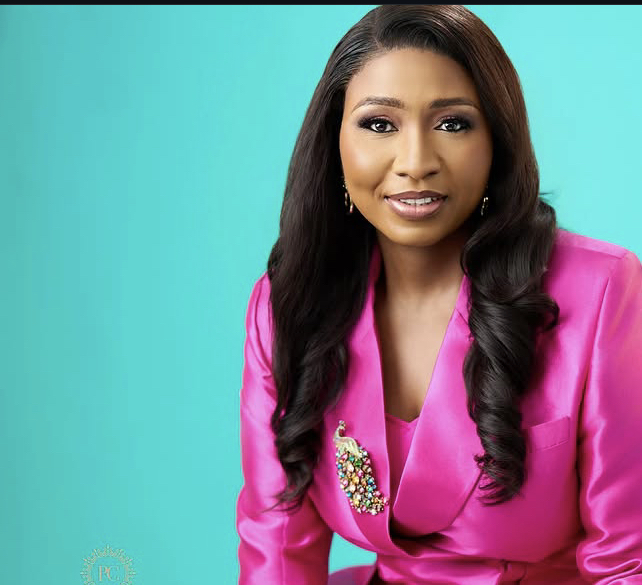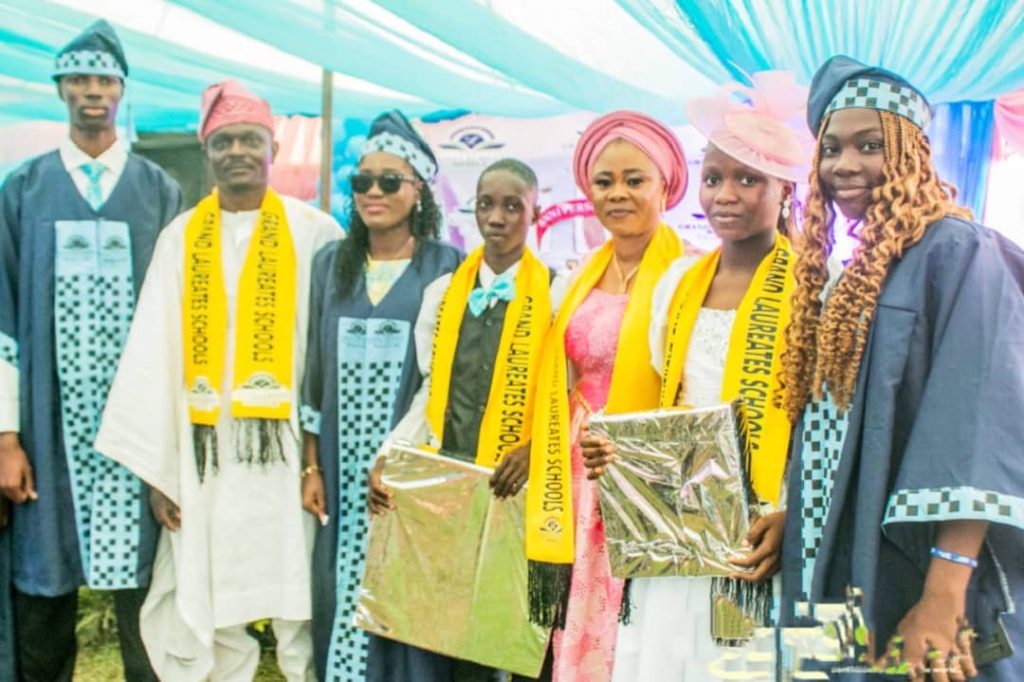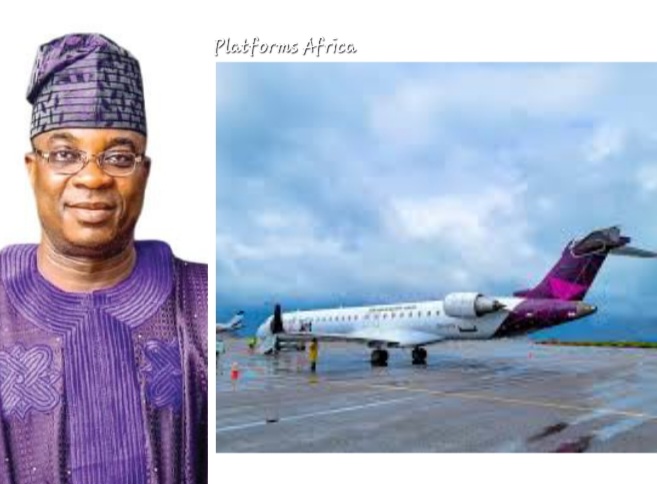The Center for Research on Development of African Media, Governance and Society (CEREDEMS-Africa) and Positive Agenda Nigeria (PAN) has formally launched a project to discourage promotion of toxic electoral campaigns during the 2023 general elections in Nigeria.
The immediate past President of Association of Communication Scholars and Practitioners of Nigeria (ACSPN), Professor Lai Oso who joined the duo of Dr Sadia Jamil and Dr Greg Simons to unveil the project at an online event, expressed optimism that it will advance scholarship and deepen democratic process not only in Nigeria but Africa.
READ ALSO: 2023: AbdulSalami, Sultan, Kukah Task Tinubu, Atiku, Obi On Campaigns
BREAKING: Wike Pulls Group Out Of Atiku’s Campaign
King Sunny Ade At 76: Man of Music, His Fame And Five Wives
You Want To Live Long? Get a Second Wife, Study Says
“I want to thank Dr Mustapha and other members of the team for this initiative, novel idea and look forward to a very fruitful journey…as we go on and on to actualize the vision and the objectives of the project… and chart the future for the continent and the Global South.”

While speaking on the theme of the programme: “Reconstructing Nigeria’s Election Campaign Atmosphere in a Time of Conflicting National Unity and Information Pollution”, Professor Oso counseled political actors to purge themselves of the divisive characteristics inherited from colonial rule.
“The root of election campaigns in Nigeria were actually established during the colonial days as colonialism, through the process of indirect and direct rules between the North and South, created a country of uneven development, where the educated political elites were composed according to their ethnic identities.
READ ALSO
Why Men Don’t Usually Survive Breast Cancer – Medical Expert
Lies People Aged 40 and Above Believe about Their Health + Risk, Danger
INTERVIEW: Most Nigerians with hypertension are not Aware of Status – Expert
‘Men Don’t Walk In, They’re Mostly Carried To Hospital When It’s Too Late’
“Some of the features that we now see were really established by colonialism during those periods and those features are still there. They form the context with which election campaigns are conducted in Nigeria right from the colonial period. These features were inherent in the country’s social structure, multicultural make-up, uneven development.

“Some of these features include: ethno-religious and regional differences/orientation, trying to amplify differences between the various ethnic groups, the region and even religion. These are some of the weapons that were used.
“We run a multi-party system based on ethnic/regional divide. Though you can see that some (political) parties might be dominant but we run a multi-party system and these parties are more or less based on ethnic identities, particularly during the first Republic.
“The media in Nigeria are owned by the government and politicians who are also businessmen, and this has a lot of implications for media coverage of politics and election campaigns.
“Then, there is the issue of violence and do-or-die nature of political competition as there is the high-level of contestation and lack of consensus on basic issues. And some of these contestation can be very bitter among the various political actors.
“For what we see now, there are no ideological differences among the major contending political parties unlike in the first Republic where you see ideological orientation among the parties.
“This has led to cross carpeting, or what the media called political nomadism, hegemony and supremacy struggle among the different political elites. They want to really be in charge of the resources of the country which makes politics and elections to be very bitter and acrimonious affairs in the country.
“In the context of that, you find that the messages that come out of actors as campaign messages are usually based on primordial differences – using songs, cultural symbols that tends to amplify some of our differences.
READ ALSO: Marry, Divorce or Die, You Have Fingers To Lose; Damn Tale of Dani Tribe
Dinka Ethnic Group: Tales of World’s Tallest Tribe
Ovahimba and Ovazimba: African Tribes Where Free Sex Is Offered To Guests
No Fat, No Prize: Bodi Tribe Where Only Fattest Men Are Heroes
VaDoma: The African Ostrich Tribe With Rare ‘Two-toed’ Population
“You find out that ethnicity has actually become an instrument of political campaigns. A lot of abusive words, songs at rally abusing individuals, the whole ethnic group as there is a whole of ethnic group profiling in our campaigns.
Distinctive Features for Election campaigns in Nigeria
Professor Oso who was the former Dean of the Lagos State University School of Communication, argued that the contextual factors gave politics and election campaigns in Nigeria their distinctive features.

He highlighted the factors as including: the dissemination of primordial and cultural symbols for political recruitment and mobilization; the weaponization of ethnicity and religion for political campaigns; the use of the media as a captive instrument for political/election campaigns; and acrimonious, cantankerous and voluble political debates and exchanges among political actors, and supporters.
Three main forces have tended to exercise negative tendencies
The don also noted the three major forces that amplify these cultural features that have tended to exercise negative tendencies in Nigerian politics.
These include demographic changes which saw the entry into the political arena of the youth propelled by the current socio-economic challenges in the country and this created a lot of changes in the political arena in terms of campaign messages and activities.
The second factor is the wide-spread accessibility to the internet and social media which has led to a decentralized media system network given voice and discursive power especially to the urban-based youth, producing more diverse contents and reaching more diverse audiences.
We saw the power of that during the EndSARS protests, where the youth were able to use the power of social media to mobilize, and we are seeing that even now that one of the political parties is relying on the use of social media to drive campaigns.
The third factor was the emergence and proliferation of civic organizations with diverse political interests and skills taking advantage of the internet and social media to mobilize support, coordinate action, keep in touch with members and sympathizers and disseminators and receive messages without the constraints of space and time.

The Nigeria Civil Societies landscape has really been broadened. They are creating content, disseminating content, reaching out to different groups, bypassing the traditional media, using social media and that has made the campaign atmosphere to be quite crowded with messages, with actors doing one thing or the other.
What interests me most in my own understanding is that nothing has changed compared to the first Republic in terms of campaign messaging and practices. I try to call it old wine in a new bottle as we can now say we have political parties that are active nation-wide, the context of election campaigns has not changed in any fundamental way.
The young ones driving the political messages, particularly their highly vociferous and contentious conversations on social media, are basing it on ethnicity and religion. Rather than ideology, some of them are driven by anger and frustration of our current special challenges; security, economic problems, poor leadership, and so on.
With their campaigns so far mainly confined to the cyber-space there is a lot of hate speech and fake news, intolerance of opposing views and ideas and an attempt to impose a spiral of silence on others.
You find out that in their messages, there is no ideological orientation. They are looking for a Messiah that will turn the county around but they are not looking at context. They are not looking at substance.
You find out a major deficit in the current campaigns that we are witnessing and so there has not been much change. You find that all the ethnic groups are looking towards one candidate or the other as representing them or one religion.
You find the Muslim-Muslim ticket of the APC has really created a lot of problem for Christian groups all over the country. That is the type of thing we are talking about. People are not looking at competence, they are not looking at party platforms and programmes. They are looking at the ethnic and religious affiliations of those who are there.
Historical prejudices, old stories and cultural myths that have their roots in our unwritten past are being exhumed and infused into political narratives and campaign messages. Old tales and events are being refurbished, modernized and re-enacted as our new realities.
Already, especially on the social media and newspaper commentaries, a lot of venom, hateful and dangerous speeches, verbal and symbolic violence and ethnic jingoism are being circulated in the public sphere.
If TV has turned politics and election campaigns into showbiz and spectacle with appearance overshadowing substance, social media has become a ready and veritable domain for the production and circulation of dangerous and divisive rhetoric and narratives, diverting attention from real issues of public concerns.
Towards a paradigm shift in election campaigns in Nigeria
“We need to understand the fact that ethnicity, religion and other cultural differences are being used by political actors to manipulate the citizenry and to divert attention. We need to have a very good understanding of some of the issues on ground.
“In order to counter this, there is the need to identify those things (events, values, practices etc) that we as a people have in common, the challenges we face and the opportunities available to all of us.
“Through the Electoral Act and INEC guidelines, determining what are campaign materials, conduct of political rallies and political campaigns, efforts have to be made to sanitize the campaign atmosphere by stipulating some measures to have cleaner, more acceptable and wholesome campaign messages.
“In this context, all the stakeholders in the electoral process must be familiar and be guided by the provisions in sections 91 to 97 of the Electoral Act, 2022 prescribing certain measures. We should find a way of enforcing those provisions on political parties, on individual political actors, civil societies organizations to obey the rules. And those who failed to obey the rules should be punished.
“I also note that certain bodies like NUJ, NBC, APCON and some other media supported guilds have been able to establish some codes of conducts for reporting politics, for creating political advertisements. We should look at some of these things and make sure that people obey them and teach and educate political actors, and their advisers on some of these things.
We know now that election campaigns have become professional issues. So the professionals that are there must know that their professional integrity is at stake. So, they must be made to work according to the professional ethics, professional standards, and try to make sure that we can not go back to what we did in the first republic in 2023. We should change our attitude, orientation, become more modern and strategic in campaign planning and message delivery.
In their coverage of campaigns and other electoral activities, the media must be fair, balanced, allow for diversity and plurality of voices and representation and put issues in proper context and perspective.
Media organisations that are involved in producing political journalism must take their gatekeeping functions more seriously. Not everything that comes out that has to be published.
Commercialisation seems to be overriding professional gatekeeping. So, they must go back to the gatekeeping functions and try to enforce it properly. News analysis and commentaries must be devoid of offensive and abusive language. They must try to communicate in a very clean wholesome manner. So that people can get informed not becoming propagandists for political actors.
We need to really check fake news, hate speech.
There is a need for all newsrooms to establish fact-checking desks in their newsrooms. We need people who can easily and quickly respond to any item of suspicion – fake news, hate speech – and debunk them as quickly as possible.
The government must work with platform owners, the big techs so that if any offensive item has been posted, maybe hate speech or fake news, they can easily be spotted and be taken off the platforms.
Government must work with them in a very sincere and honest manner, not the kind of the media approach that the Federal Ministry of Information is adopting now.
Democratic Culture: Nigeria should learn from foreign countries
In their separate speeches, Dr Greg Simons and Dr Sadial Jamil narrated the experiences of how America, Russia, Sweden and Pakistan have experimented with democracies and highlighted the lessons Nigeria can learn from them.
While Dr Simons spoke on “Contextualizing and localizing foreign lessons learned from election campaigns in times of crises”, Dr Sadia delivered a speech on “Choosing the right candidates from a toxic election campaign environment: How voters should navigate the terrain”.
In his own address, the Executive Director of Media Career Development, Mr Lekan Otufodunrin identified the solutions to toxic political campaigns and information pollution.
Mr Otunfodunrin asked politicians, electoral body, media institution, the government and other stakeholders to play their roles in the detoxication of the elections in Nigeria by insulating the political process of its corrosive effect.
In her lecture, Dr Ganiyat Tijani-Adenle who lectures at the Lagos State University School of Communication spoke on “Making Political Campaign free of Information Pollution: Critical Questions”.
Dr Tijani-Adenle asked political stakeholders to cultivate a good sense of history, think beyond elections, ethnicity, religion and primordial sentiments to put Nigeria on the right track.
She advocated for the adoption of Report Until Something Happened (RUSH) strategy proposed by the Wole Soyinka Centre for Investigative Journalism, by conducting a postmortem media coverage of election, and information disorder after elections.
Dr Greg Simons, an associate professor at Uppsala University, Sweden and Dr Sadia Jamil, chair of the Journalism Research and Education Section, International Association of Media and Communication Research (IAMCR) described the project as timely and look forward to its replication in other democracies of the world.
Earlier, the Executive Director of CEREDEMS-Africa, Dr Mustapha Muhammad Jamiu said the project is tagged: “Improving Credible General Elections in Nigeria through Real-Time Monitoring of Campaigns in Physical and Virtual Platforms during the 2023 General Elections”.
Dr Mustapha said the project was initiated realizing that while elections play a vital role in the process of democracy, so are campaigns for the elections and information management of the campaigns. These are three key parts of our project. Election, campaign, and information to realize a governmental system for a developed society are the main tenets of CEREDEMS-Africa.
“We are here today to witness a kick start of a developmental journey through a developed media, governance and a better society for Africa. We are also here to learn, reflect, and digest the possible ways to achieve a free, fair and credible election in 2023.”
While launching the Center, Dr Mustapha explained that CEREDEMS-Africa is a Non-Governmental Organization, and research institute established in 2020, which focuses on using cutting-edge multi-disciplinary research methods to generate insights that improve policy initiative and implementation with regards to improving media ecosystem, governmental and societal institutions.
“On November 14 2020, CEREDEMS-Africa has its first international programme – a webinar with the title: Narratives Around Information Disorder Ecosystem in Africa” to educate Africans about the effect of Information Disorder in the context of fake news, misinformation, disinformation as the continent continues to experience various socio-economic and political crisis.”





